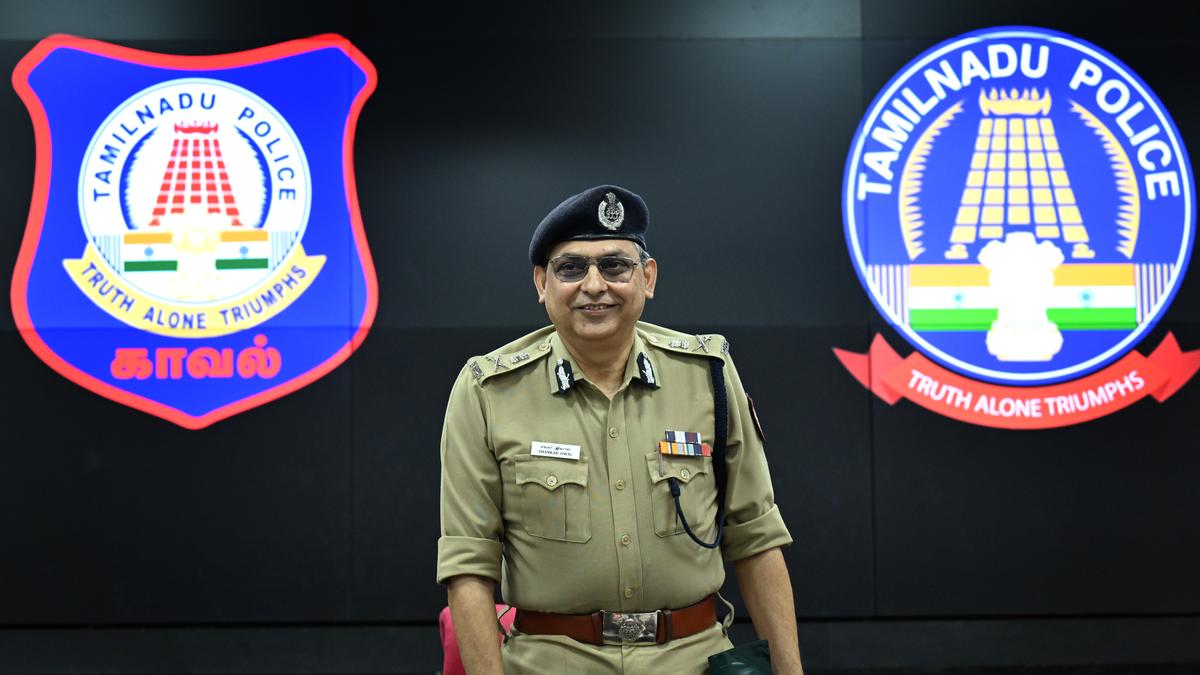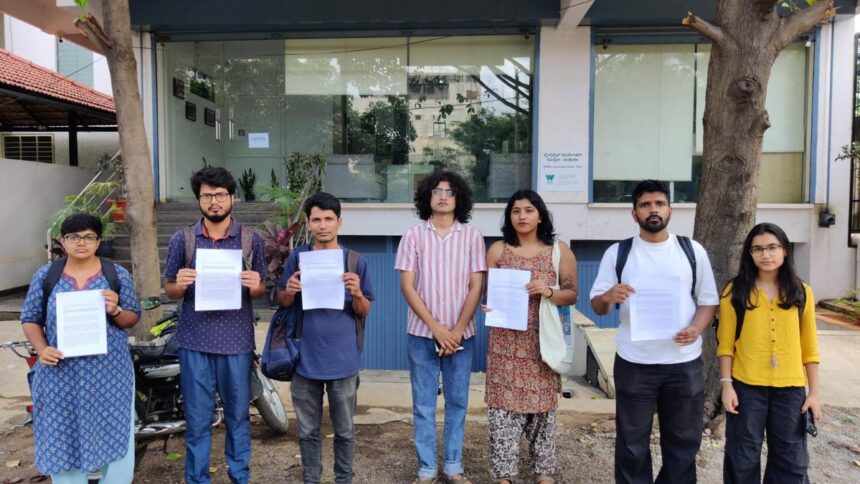
“The Tamil Nadu Criminal Procedure Rules, 2025 institutionalise standardised practices across police stations and criminal courts, while simultaneously driving digital transformation in the way criminal procedures are administered,” Tamil Nadu DGP Shankar Jiwal said. File
| Photo Credit: The Hindu
With the Tamil Nadu Criminal Procedure Rules coming into effect, a police station can now register FIRs for cognisable offences committed outside its jurisdiction. Such FIRs must be transferred electronically and physically to the competent police station within 24 hours.
The Tamil Nadu Criminal Procedure Rules, 2025, were notified by the Tamil Nadu Government to align the state’s procedural framework with the Bharatiya Nagarik Suraksha Sanhita, 2023 (BNSS) (New Criminal Procedure Code). Director General of Police (DGP) and Head of Police Force (HoPF) Shankar Jiwal told The Hindu, “These rules institutionalise standardised practices across police stations and criminal courts, while simultaneously driving digital transformation in the way criminal procedures are administered. The rules are designed to ensure uniformity, transparency, efficiency, and greater accountability in criminal law enforcement and judicial coordination, procedural reforms, and readiness measures necessary for effective enforcement of these rules across the State.”
“Sufficient infrastructure arrangements to implement these provisions are at an advanced stage of rollout, and all the police personnel have been given training on the new provisions. One of the most significant features of these Rules is the integration of digital platforms and applications for almost every stage of the criminal procedure,” said Mr. Jiwal.
It would pave the way for courts to serve summons through authenticated email, OTP-verified mobile numbers, or standard messaging platforms. Summons service is also digitally logged and tracked, and due service can be established through reply messages or automated links.
The Rules institutionalise several important practices to ensure procedural fairness and judicial compliance. In every police station, a book called the Arrest Intimation Register—whether in physical form, in e-register, or both—in Form I shall be maintained for the purpose of making an entry of the fact as to who has been informed of the arrest of the person. The police officer making the arrest shall forthwith give the information of such arrest and the place where the arrested person is being held, whether by electronic communication or otherwise, to any of his relatives.
As per the rules, the eSakshya Mobile Application—a mobile and web platform—is now mandated for recording audio-visual evidence, uploading photographs of crime scenes or witnesses, and generating immutable SID packets (secure, geo-tagged, time-stamped evidence with hash verification). This strengthens the chain of custody and evidence admissibility.
The rules require the mandatory maintenance of several electronic or physical registers to capture key procedural events, incoluding: Arrest Intimation Register (Form I): Captures who was informed of the arrest and how, including in the case of foreign nationals. Summons Register (Form II): Maintains detailed records of summons issued, served, or pending, with monthly abstract reports. e-Information Register (Form V): Records electronic complaints, with provisions for confirming authenticity via in-person appearance within three days. Non-Cognizable Offence Report and Register (Forms VI–VIII): Structured tracking and reporting of non-cognizable complaints and forwarding to magistrates. Police Reports and Final Investigation Reports (Forms XI & XII): Clear formats and timelines are defined for filing charge sheets and supplementary reports, including information to be shared with informants and the courts via post or email.
The rules institutionalise digital evidence management through unique SID ID packets with geo-tags and hash-based authenticity verification. The digital certificates are generated via the eSakshya app for court submission will be tamper-proof evidence.
Mr. Jiwal said that for effective implementation, the Tamil Nadu Police has ensured testing of digital platforms such as CCTNS (Crime and Criminal Networking System)-II, eSakshya, and e-summons has been completed. Adequate hardware (tablets, body cameras, servers) and technical support at the police station level have been provided. Periodic training and capacity-building for all investigating officers, Station House Officers (SHOs), court staff, and prosecutors are underway.
The Tamil Nadu government’s notification of the TN Criminal Procedure Rules had earlier enabled greater access to the criminal justice system. Now, information regarding a criminal incident can be filed through email, the police website, or even through SMS to the concerned Station House Officer.
“With regard to non-cognisable cases, it is now mandatory on the part of the police to receive a complaint, register it, and forward the same to the court. An acknowledgment receipt is the right of the complainant. A new format has been introduced to submit documents in criminal courts,” said R. Karthikeyan, law lecturer.
Published – July 18, 2025 09:44 pm IST



















